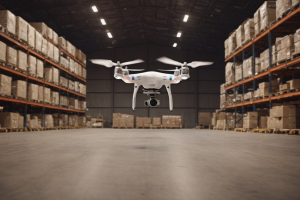Applied Intuition Secures $250M Funding Round Valuing Company at $6B
AI-Powered Autonomous Vehicle Software Firm Continues Expansion
Applied Intuition, an AI-driven autonomous vehicle software firm, has secured a $250 million funding round which values the company at $6 billion. This investment demonstrates growing interest from investors in AI applications across various industries such as automotive, defense, construction, and agriculture.
The Series E round was spearheaded by Lux Capital, Elad Gil, Porsche Investments Management, Andreessen Horowitz, Mary Meeker’s bond growth fund, and former Formula 1 world champion Nico Rosberg. Previous investors Lux Capital, Elad Gil, and Andreessen Horowitz also participated in previous funding rounds for Applied Intuition.
Co-founder and CEO Qasar Younis reveals that the fresh funds will be utilized to support “the most ambitious projects” while preserving the company’s unique culture. Established in 2017, Applied Intuition offers software solutions to automakers and others for developing autonomous vehicle systems. Their offerings include simulation tools for testing and refining perception and vehicle behavior systems, as well as managing vast amounts of data related to autonomous vehicle development.
Applied Intuition boasts collaborations with 18 of the leading 20 automakers, including General Motors, Toyota, and Volkswagen, along with autonomous vehicle startups like Gatik, Motional, and Kodiak. They also hold contracts with the U.S. Army and the Defense Innovation Unit.
Peter Ludwig, co-founder and CTO, believes that partnership with Applied Intuition is crucial due to the complexity of the technology they work on. The recent funding round arrives amidst heightened scrutiny around autonomous vehicle development following incidents involving GM-owned Cruise, Waymo, and other industry players. However, the demand for AI integration remains strong, according to Younis, who states that incorporating more AI technology into their products will “exponentially accelerate the production of next-generation vehicles.” This may involve leveraging advanced techniques such as large language models, as well as exploring more experimental research domains.












